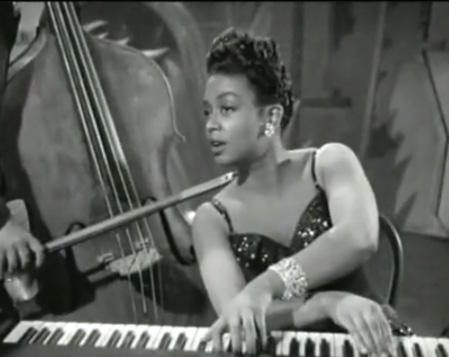The Lady Had Soul

Shirley Scott was a petite woman who handled the bulky Hammond B3 organ with ease, grace and a musicality all her own. She was its master and anyone who watched her inventive style knew it. She was encouraged to switch from piano to organ, which was a more popular instrument at the time, and she took to it instantly. A few decades later, when the organ fell out of fashion, she returned to piano. When it’s popularity started to rise again, the versatile musician renewed her partnership with the Hammond and, quite literally, did not miss a beat.
Scott was born to a musical family in Philadelphia family in 1934. Her father managed a jazz club in the City of Brotherly Love and her brother played the sax. She started playing piano and sax in school, eventually earning a BA and MA from Cheyney University. In her early days, she often performed with John Coltrane and later developed a successful musical partnership with saxophonist Eddie “Lockjaw” David. One of their collaborations, “In the Kitchen,” became one of Scott’s greatest hits and their series of “Cookbook” records are legendary in jazz history. Scott married jazz great Stanley Turrentnine in 1960 and the two performed together throughout the decade. After the break-up of their marriage, she formed her own trio, often playing with saxophonist Harold Vick. She also took a gig with Bill Cosby as music director on his television show, “You Bet Your Life.”
Scott never strayed far from Philly and in her later years became a distinguished member of the city’s jazz community while also teaching at Cheyney. She suffered from primary pulmonary hypertension, which she claimed was brought on by the use of a diet pill. She sued the company and was awarded $8 million in 2000, but died in 2002. She is survived by five children, lots of grandchildren and great grandchildren, and by some of the best jazz sounds ever recorded. While she mastered the genres of be bop, hard bop, and jazz blues, to many she will be especially remembered for her haunting musical expressions in soul jazz. Decades before anyone had ever heard of Aretha, this lady had soul.
***
March is National Women’s History Month! We’ll be sharing stories about some of the most accomplished women in jazz, both nationally and locally. We hope you enjoy this tribute to the women of jazz.
9(MDA3NDU1Nzc2MDEzMDUxMzY3MzAwNWEzYQ004))
Become a Member
Join the growing family of people who believe that music is essential to our community. Your donation supports the work we do, the programs you count on, and the events you enjoy.
Download the App
Download KUVO's FREE app today! The KUVO Public Radio App allows you to take KUVO's music and news with you anywhere, anytime!
